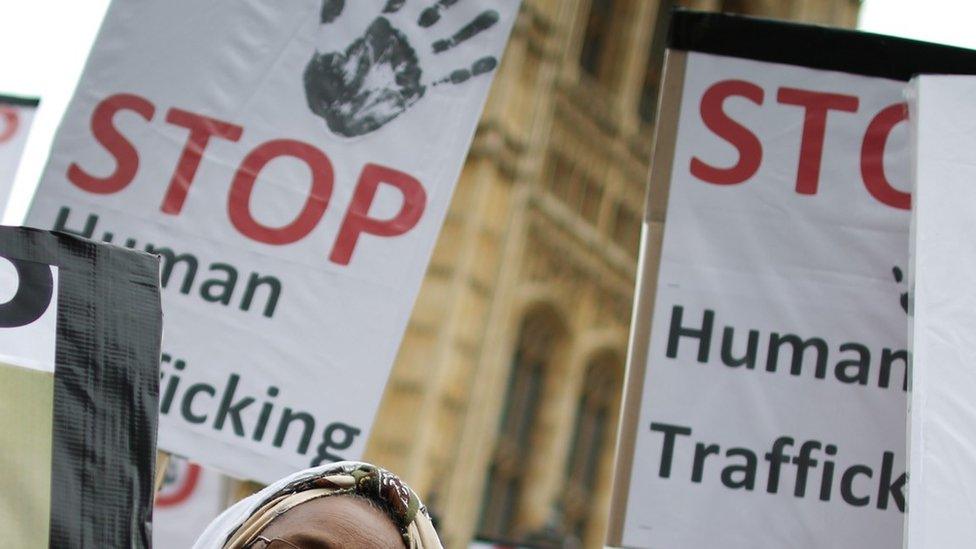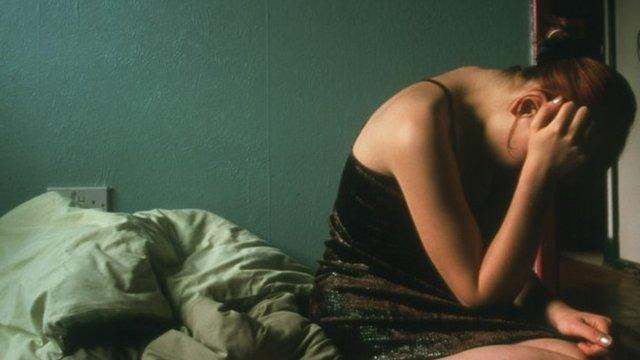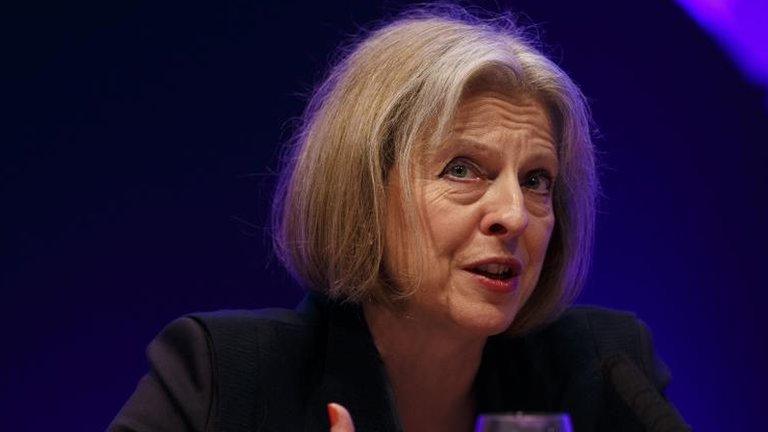Anti-slavery powers come into force in England and Wales
- Published
"Emma" tells the BBC how she was forced into prostitution in Albania and trafficked across Europe
Key parts of new legislation to combat slavery in the UK - including life sentences for those guilty of people trafficking - have come into force in England and Wales.
The Modern Slavery Act, external has increased the maximum custodial sentence for offenders from 14 years to life.
It also gives courts powers to impose orders to restrict the activities of suspected traffickers.
Anne Read, of the Salvation Army, said thousands remain trapped in slavery.
The new legislation also gives victims extra protection against prosecutions for offences committed as part of their exploitation and provides slavery victims access to civil legal aid.
Powers to encourage reparation orders, for courts to use seized assets from perpetrators to compensate victims, have also come into force.
The bill - which was given Royal Assent in March - aims to consolidate offences used to prosecute those who enslave others into a single act.
The plans were first unveiled by Home Secretary Theresa May in August, last year.
'Escalation in effort'
Home Office figures estimate there could be between 10,000 and 13,000 people who remain trapped in modern day slavery in the UK.
They including women forced into prostitution, domestic staff who are imprisoned, and people forced to work in fields, factories and on fishing boats.
To coincide with the new legislation, the College of Policing has published new national guidance on investigating slavery and human trafficking.
It says the "primary objective" of investigating allegations is to safeguard and support victims. and includes guidance on how officers can identify people who may be at risk of becoming a victim of trafficking or forced labour.
BBC home affairs correspondent Danny Shaw said the guidance warns officers that victims may be experiencing so-called "Stockholm syndrome", where they have positive feelings towards their captors.
It warns it may take "months to obtain evidence from them", our correspondent said.
Ms Read, anti-trafficking and slavery director at the Salvation Army, said: "Everyone engaged in this work is pleased that something is being done, there is now an escalation in effort.
"There are thousands of people trapped in situations not of their choosing, doing things they do not what to do and things need to be done to help them and to stop anybody else being sold in to slavery."
The Salvation Army - which holds the Home Office contract for managing safe houses for adult trafficking victims - says it has helped more than 2,500 men, women and families over the past four years.
- Published16 December 2013

- Published16 December 2013

- Published25 August 2013
